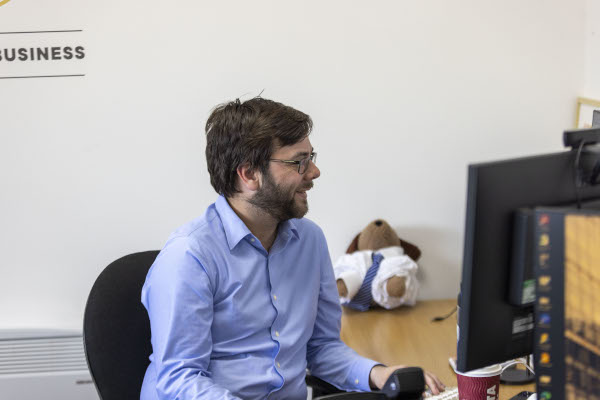Do I qualify for tech nation endorsement for Global Talent in 2025?
As we approach the midpoint of 2025, the global talent route is in a good place. In the May 2025 white paper on immigration, the government confirmed an intention to further expand the route with an estimated 50-100% increase in the numbers of visas granted within the current parliament. A particular focus is on the tech sector, specifically artificial intelligence and emerging tech. We have also had confirmation that Tech Nation will continue as the endorsing body for the next three years, providing some much needed stability after years of uncertainty over who would be assessing applications on a long term basis.
One of the primary challenges on this route is that it carries a high degree of subjectivity, making it hard for potential applicants to understand whether it is worth investing the time and money to make an application. Over the years, the rules setting out the standard for endorsement have remained fairly similar, but the guidance and interpretation by decision makers have shifted significantly. This blog does not set out the rules, but rather the questions we think applicants should be asking themselves in order to understand whether they are likely to qualify. The answers we’ve put are based on our experience seeing a high volume of candidates pass through the route.
If you are interested in making an application, or would like to discuss your case further, you will find a link to book a free appointment with a specialist at the bottom of this page.
How many years into your career are you?
0 – 2 à We tend to find that those in this bracket do not have a wide enough range of evidence or experience to qualify.
3 – 4 à This is the sweet spot for eligibility under exceptional promise with most successful applicants being in year four of their career.
5 – 6 à From here you will need to start looking at the criteria for exceptional promise, as you are now beyond the point viewed as an early stage career. However, the jump in standard is high, meaning we find that applicants in this band tend to struggle with endorsement.
7 years and beyond à This is the sweet spot for exceptional talent. Here, applicants tend to have enough high quality evidence to qualify, and are not struggling with good evidence falling out of time due to being more than five years old.
Have you worked for a product-led digital technology company?
Many of the criteria that should be relied on needs to take place within the setting of a product-led digital technology company. Those without evidence in this area usually struggle in forming an application for endorsement, although we do have one or two strong applicants each year who are able to gather evidence in research and volunteer capacities instead.
A product-led digital technology company is one that makes most or all of its money from a proprietary digital technology product or platform. You cannot rely on evidence from a consultancy company, and you cannot rely on a company that sells a digital technology product but where this is incidental to the main purpose of the business.
The example I give to my clients is that Apple is a product-led digital technology company because most, or all of, their income comes from computer hardware such as iPhones, Macs, smartwatches etc. and their various software packages in that ecosystem. Netflix is a product-led digital technology company because they sell access to a streaming platform as a product.
Common examples from enquiries of businesses that are not product-led digital technology companies include crypto-trading companies (these are asset trading companies even if they develop their own software to assist with this), third-party software development companies (where they develop software for a client), anything with “solutions” in the company name (consultancies).
Within this company, or companies, have you worked on a minimum of two distinct projects that have either been technically innovative in a way that has generated significant revenue for the business, or have had significant impact on the field in either a business or technical sense?
You cannot rely on the same evidence for more than one criteria, meaning that you will likely need two to three projects of significant importance in order to get endorsed.
It can be possible to put together an application that does not rely on product-led digital technology companies but they are exceedingly rare and would require by default significant contribution via peer reviewed papers and through voluntary work.
Are you subject to corporate confidentiality, non-disclosure agreements or otherwise unable to gather first party evidence?
This is the single biggest reason I see for applications that start strong but become untenable. If you say you’ve achieved something, Tech Nation will not take your word for it. You have to prove it.
Let’s say that you’ve invented a new system for processing data that has created a new industry standard and resulted in significant economic benefit and profits for those companies who have adopted it. This is a bread and butter kind of achievement that meets at least one, maybe two of the criteria.
You tell them the impact it’s had. Prove it. Where are the company accounts? The P & L sheet? The data metrics for the improvement in processing speed?
You explain how it works. Prove it. Where is the code that lines up with your explanatory notes? The original design documents showing how you figured out the problem?
And of course, it was you not anyone else who was responsible for this. Prove it. Where are the commit logs showing it was you working on this? The author notes showing the documents were created under your licence? Etc.
In very narrow circumstances, mostly in terms of trying to pin the candidates involvement to a specific achievement, you can get a letter from someone who had oversight of the work confirming your involvement but this
Recognition, Recognition, Recognition
One of the big shifts we’ve seen in the last 12 months is a greater focus from decision makers on recognition. Where a year ago, our big successes were with applications that focused on demonstrating the technical knowledge of an applicant, today its those who have had notable industry recognition. This shifts the balance in terms of who the rules tend to benefit. When the focus is on technical knowledge, those in software development and highly specialised fields tend to do better. When the focus is on recognition, those in high level business roles and public facing positions will find it easier to gather evidence.
Want to find our more on tech nation endorsement for Global Talent in 2025?
For more information and tailored advice for your tech nation endorsement for Global Talent in 2025 case. Take advantage of a free initial consultation with OTB Legals Global Talent Specialist Samuel Gardner. You can book this using the button below. Alternatively, you can drop us a message with details of your question/query using the contact form below. We look forward to hearing from you.

Contact Us
Not quite ready to book an appointment yet or unsure if it’s the right step for you? No worries! We understand that making decisions regarding legal matters can be daunting.
Reach out to our Client Care Manager, Rikki, who will be more than happy to assist you and guide you in the right direction.
Your peace of mind matters to us, and we’re here to support you every step of the way. Contact Rikki today for personalised guidance and assistance.

